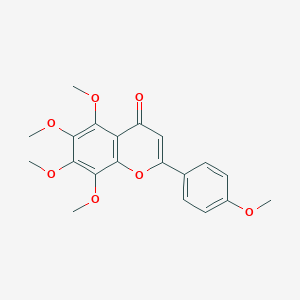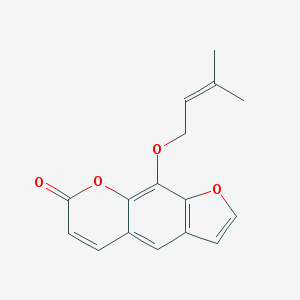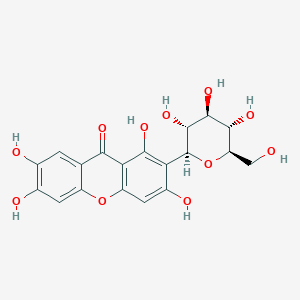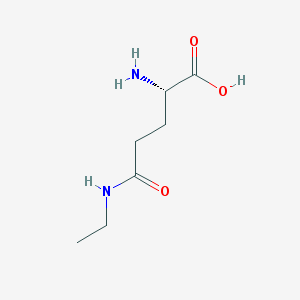Description
Tangeretin (Tangeritin), a natural polymethoxylated flavone found in citrus fruit peel, has antiproliferative, antiinvasive, antimetastatic, and antioxidant properties.
Tangeretin is a natural compound belonging to the class of flavonoids, specifically a type of polymethoxylated flavone. It is primarily found in the peel of citrus fruits such as tangerines, hence its name. The main benefits and applications of tangeretin are as follows:
- Antioxidant Properties: Tangeretin exhibits strong antioxidant activity, helping to neutralize free radicals in the body. This can reduce oxidative stress, which is linked to various chronic diseases.
- Anti-inflammatory Effects: It has been found to have anti-inflammatory properties, making it potentially beneficial in conditions associated with inflammation.
- Neuroprotective Effects: Research suggests that tangeretin may have neuroprotective effects, potentially beneficial in neurodegenerative diseases like Alzheimer’s and Parkinson’s.
- Cancer Research: Some studies indicate that tangeretin may have anti-cancer properties, though this is primarily in the context of laboratory studies and more research is needed to understand its potential in cancer therapy.
- Cardiovascular Health: There is some evidence that tangeretin can benefit cardiovascular health by improving lipid metabolism and reducing the risk of atherosclerosis.
- Application in Skin Care: Due to its antioxidant properties, tangeretin is sometimes used in skincare products. It may help protect the skin from damage caused by UV rays and environmental pollutants.
- Dietary Supplement: Tangeretin can be found as a component in certain dietary supplements, often marketed for its antioxidant and anti-inflammatory benefits.
- Potential in Metabolic Syndrome: Early research indicates that tangeretin might have a role in managing metabolic syndrome by influencing fat metabolism and insulin sensitivity.





